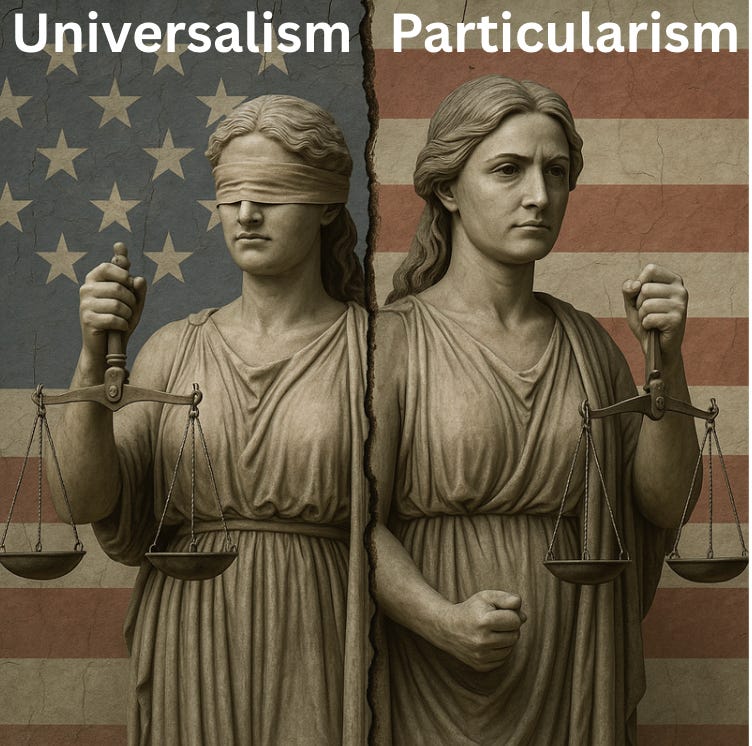Punishment for the Poor, Pardons for the Powerful
The United States is locked in a struggle over what rules mean and who they apply to.
On one side are those who believe in universal rules: the law is the law, and it applies equally to everyone. No exceptions. If you break the law, you face the same consequences, no matter your wealth, power, or connections.



